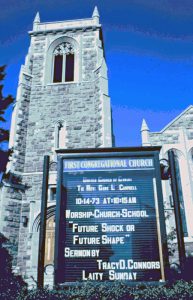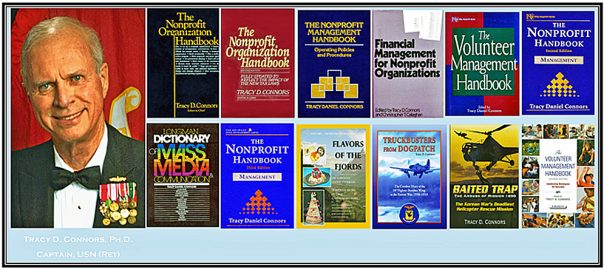Looking ahead by looking back

October 1973 was a busy month around the world. Israel, Jordan, Egypt were fighting the Yom Kippur War, Gerald Ford was nominated to replace the under indictment Spiro Agnew as Vice President, Maynard Jackson was elected as the first black mayor of Atlanta, OPEC raised the price of oil by 17 percent then embargoed exports to the U.S., President Nixon fired prosecutor Archibald Cox (Saturday night massacre), the FBI was tapping John Lennon’s phone, the USSR was testing nukes in Semipalatinsk.
Oh, and it is a little-known fact that Tracy Connors was the lay pastor on October 23rd at the First Congregational Church in Stamford, Connecticut.
I had almost forgotten that “stop the presses” notable event myself. However, as I was cleaning out filing cabinets (to make room for more paper that can be thrown out later), I noted a small file that included a “bulletin” from “First Cong” as it was called, along with typed pages that began, “The title of my remarks this morning is ‘Future Shock.’”
Improbably enough, it was the actual remarks I had so carefully prepared for that day.
The focus of my remarks on that beautiful Sunday morning almost half a century ago, was to encourage the audience to consider the impact on us and our church of rapid changes taking place in our little city, and in our lives, and to put them into a context that would enable us to better understand them.
A new book by Alvin Toffler had recently been published entitled Future Shock. I used the concepts and insights offered by Toffler, the visionary who helped us understand what happens to people when they are overwhelmed by change.
Using his concepts as the basis for a series of “what if” observations, I framed his analysis in the context of Stamford’s massive urban mental project, then reaching its peak in terms of destruction of the city center with its roots as a 19th-century village, and transformation into “Manhattan North.” Massive changes throughout the city and our national culture were inescapable, and to survive the hurricane impact of accelerating change, new ways needed to be found to anchor and adapt our church, ourselves, and our lives.
Today, as was true then, “non-change” is not the answer to disorienting change. Instead, our best hope is to mediate impending chaos through an array of creative strategies deliberately crafted to shape, deflect, accelerate, or de-accelerate change, but on our terms. In short, to survive change by meeting it with changes we design from the outset that harness the thrusts and directions of accelerating change to steer it, and pace it.
As I reread these thoughts from what is now so long ago I was struck by several confirmations reached by comparing what I said at the time with what has happened since then.
© Copyright 2018 BelleAire Press, LLC
